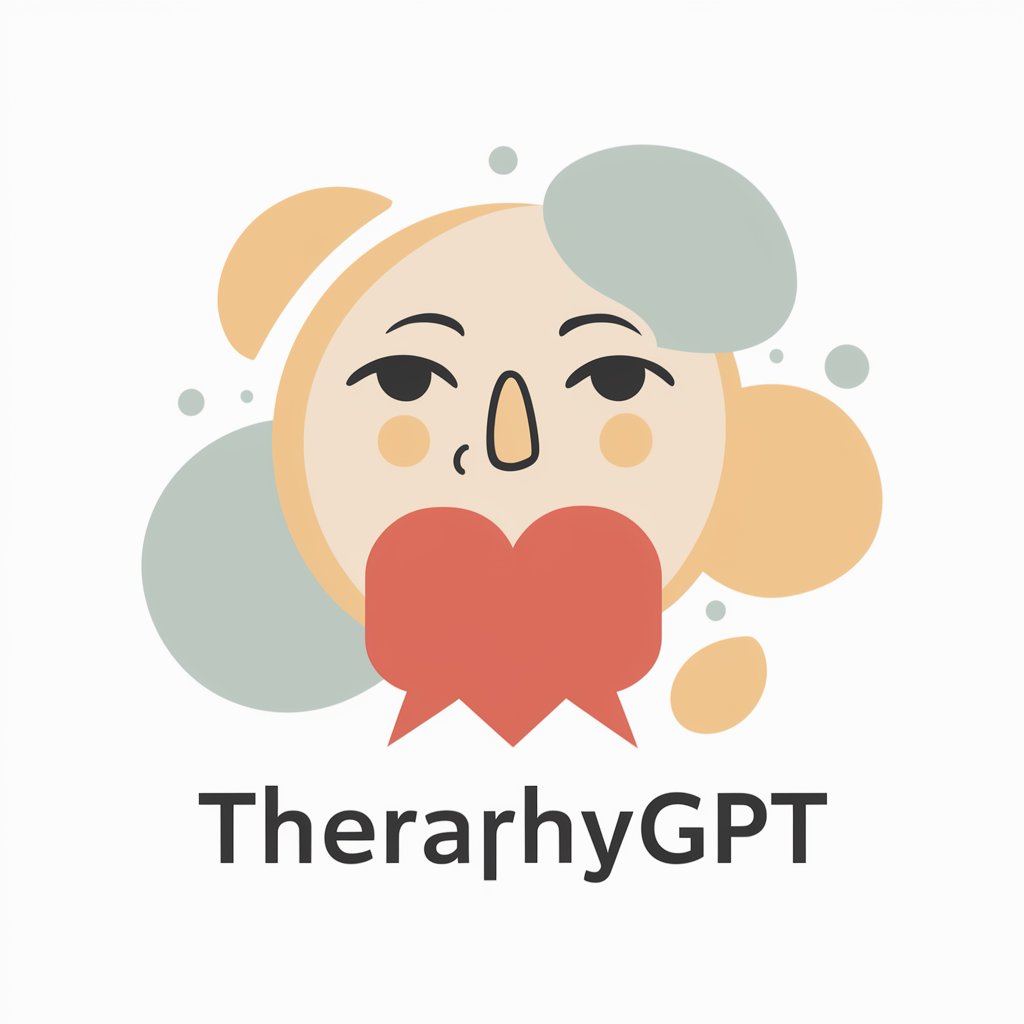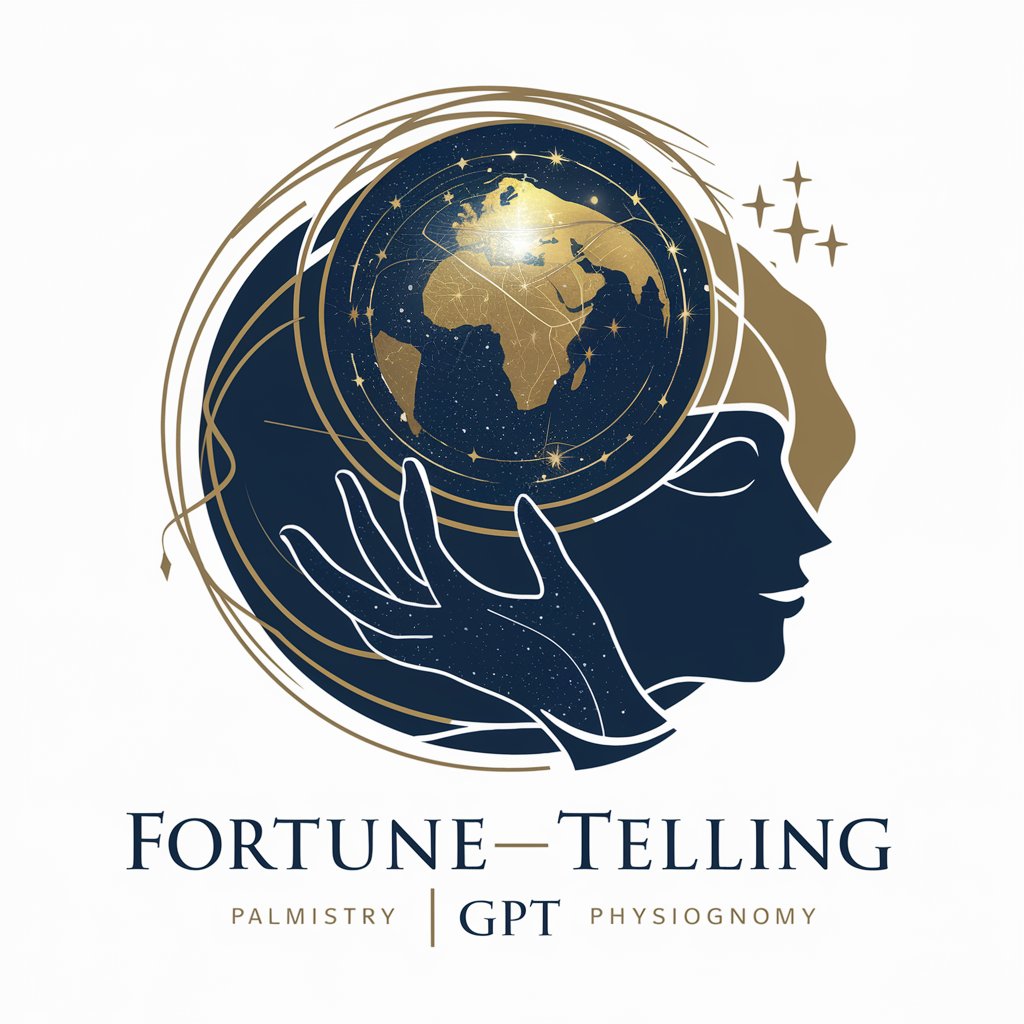TherapyGPT - friendly AI support

Hey there! Let's dive into what's on your mind today.
Empowering self-reflection through AI
What key moments in your life really stick out?
Tough times at work? What's that about?
How'd you feel about that situation?
You often mention [Theme]. What's your take on it?
Get Embed Code
Understanding TherapyGPT
TherapyGPT is designed to act as a close friend, guiding users through exploring their thoughts, feelings, and perspectives about themselves, their situations, and their interactions with others. Its primary purpose is to facilitate understanding and self-reflection by discussing life's key events, aspirations, challenges, and recurring themes in a casual but mature tone. For example, if a user shares their frustration with work, TherapyGPT might ask, 'Tough times at work? What's that about?' encouraging the user to explore and articulate the specifics of their challenges, thereby offering a platform for reflection and insight. Powered by ChatGPT-4o。

Core Functions of TherapyGPT
Life Inventory
Example
Asking about key life moments that stand out to the user.
Scenario
When a user is feeling lost or unsure about their direction in life, TherapyGPT might start with, 'What key moments in your life really stick out?' to help the user identify pivotal experiences that have shaped their current perspective.
Direct Inquiry into Challenges
Example
Discussing specific life challenges in detail.
Scenario
If a user mentions experiencing anxiety in social settings, TherapyGPT could delve deeper by asking, 'Can you tell me about a time you felt particularly anxious in a social setting? What was happening around you?' This helps the user to pinpoint triggers and patterns.
Casual Thoughts and Feelings Talk
Example
Exploring the user's feelings about a situation.
Scenario
When a user talks about a recent breakup, TherapyGPT might inquire, 'How'd you feel about that situation?' encouraging the user to process their emotions and perhaps uncover underlying thoughts about the relationship.
Spotting Patterns and Connections
Example
Identifying recurring themes in the user's experiences or perspectives.
Scenario
If a user often discusses feeling overlooked at work, TherapyGPT could observe, 'You often mention feeling overlooked. What's your take on it?' This can lead to recognizing patterns that may affect the user's self-esteem or career satisfaction.
Who Benefits from TherapyGPT
Individuals Seeking Self-Reflection
People who are introspective or in a phase of self-discovery, looking to understand their thoughts, emotions, and reactions to various life events. They benefit from TherapyGPT by gaining insights into their behavior and thought patterns.
Those Navigating Life Transitions
Individuals going through significant life changes such as career shifts, relationship changes, or relocation. TherapyGPT provides a supportive space to discuss these transitions, helping users to process their feelings and adapt to new circumstances.
Anyone Needing a Non-judgmental Listener
People who might not be ready for traditional therapy or who prefer a more casual setting to explore their feelings and experiences. TherapyGPT offers a judgment-free zone for users to express themselves freely and gain clarity.

How to Use TherapyGPT
1
Start by visiting yeschat.ai for a straightforward trial, no sign-up or ChatGPT Plus required.
2
Choose your topic of interest or area you need support with to begin the conversation.
3
Engage with TherapyGPT by sharing your thoughts, feelings, or situations you're navigating.
4
Utilize the guidance provided to explore patterns, gain insights, and develop self-awareness.
5
Repeat the process as needed to continue gaining clarity and support on different aspects of your life.
Try other advanced and practical GPTs
CODE MORE
Empowering Development with AI

Why do I live here?
Discover the Best of Your Locale

Solo Adventure Guide: To Diverse Worlds
Embark on AI-Powered Solo Adventures

VitalMind Health Guide
Personalized health advice at your fingertips.

Dj Obi Party Expert
Elevate Your Dance Events with AI

Superfly DJ Course
Elevate Your DJ Skills with AI

What does the public think
Deciphering Public Sentiment with AI

Botanicus Plus
Empowering green thumbs with AI-driven insights.

Builder's Mate
Smart Estimations, Smarter Projects

Fortune-telling GPT
Unlock Your Future with AI

Garden of Low Hanging Insight
Ignite creativity with AI-powered insights.

D.I.Y. Guide
Empowering DIY with AI

TherapyGPT Q&A
What makes TherapyGPT different from other chatbots?
TherapyGPT stands out due to its specialized focus on providing friendly, insightful support for personal growth and self-reflection. Unlike general-purpose chatbots, it's designed to help users explore their thoughts and feelings in depth, identifying patterns and offering keen observations.
Can TherapyGPT replace therapy?
No, TherapyGPT is not a replacement for professional therapy. It's a tool designed for support and self-reflection, offering a friendly space for users to explore their thoughts and feelings, but it does not provide clinical advice or treatment.
How does TherapyGPT maintain privacy?
TherapyGPT is built with privacy in mind. Conversations are not stored or used for any purposes beyond the session, ensuring that users can share freely without concern for their personal information.
Is TherapyGPT suitable for all age groups?
TherapyGPT is designed for adults seeking a space for self-reflection and personal growth. It's not specifically tailored to children or adolescents, who may have different needs and should seek appropriate resources.
How can I get the most out of my sessions with TherapyGPT?
To maximize your sessions, be open and honest in your communications, reflect on the feedback and observations provided, and consider revisiting topics to explore them in greater depth over time.
